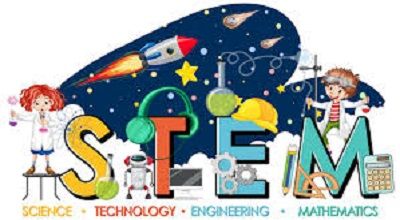High School Students Making STEM
High school students can engage in various ways to make a meaningful impact in STEM. (Science, Technology, Engineering, and Mathematics) fields. Here are some ways high school students can get involved and contribute to STEM:
Science Fair Projects: High school students can participate in science fairs and develop their own research projects. This is an excellent way to explore their interests and contribute to scientific knowledge.
STEM Clubs: Many high schools have STEM clubs or organizations. Where students can join and collaborate on STEM-related activities, projects, and competitions.
Online Courses and Tutorials: There are numerous online resources and courses. Tutorials are available on platforms like Coursera, edX, Khan Academy, and YouTube. High school students can use these resources to learn about various STEM topics.
Participate in Competitions: High school students can participate in STEM competitions like the Intel International Science and Engineering Fair (ISEF). Science Olympiad, Robotics competitions (e.g., FIRST Robotics), and more.
Internships and Research Opportunities: Some universities and research institutions offer internships. Or research opportunities for high school students interested in STEM. These experiences provide hands-on learning and exposure to real-world research.
Mentorship: Seeking mentorship from teachers, professors, or professionals in STEM fields can provide valuable guidance and support. Mentors can offer insights, advice, and even opportunities for projects or research.
STEM Outreach Programs: Many organizations and universities have STEM outreach programs designed to engage and educate K-12 students in STEM subjects. High school students can participate in these programs as volunteers or participants.
Read More…
DIY Projects: High school students can pursue do-it-yourself (DIY) STEM projects at home. This can include building robots, conducting chemistry experiments, coding projects, and more.
Coding and Programming: Learning to code and program is an essential skill in many STEM fields. High school students can start by learning programming languages like Python, Java, or C++.
Online Communities: Joining online communities and forums related to STEM can be a great way to connect with like-minded individuals, ask questions, and share ideas and projects.
STEM Blogs and YouTube Channels: Some high school students have created STEM-focused blogs. YouTube channels, or social media accounts to share their knowledge and projects with a broader audience.
Collaborate on Research: Some schools or local organizations may facilitate collaborative research projects for high school students. These projects can involve working with professionals and other students on meaningful research.
Attend STEM Camps and Workshops: Many organizations offer summer camps and workshops focused on STEM subjects. These can be immersive and educational experiences.
Advocate for STEM: High school students can advocate for STEM education and funding within their schools and communities. Promoting the importance of STEM fields in solving real-world problems.
Invent and Innovate: Encourage creativity and innovation by identifying problems in your community. Or the world and working on solutions using STEM principles.
Summary
Overall, high Students can make a significant impact in STEM by exploring their interests. Seeking opportunities for learning and engagement, and actively participating in STEM-related activities and projects. Starting early can set a strong foundation for future studies and careers in STEM fields.
